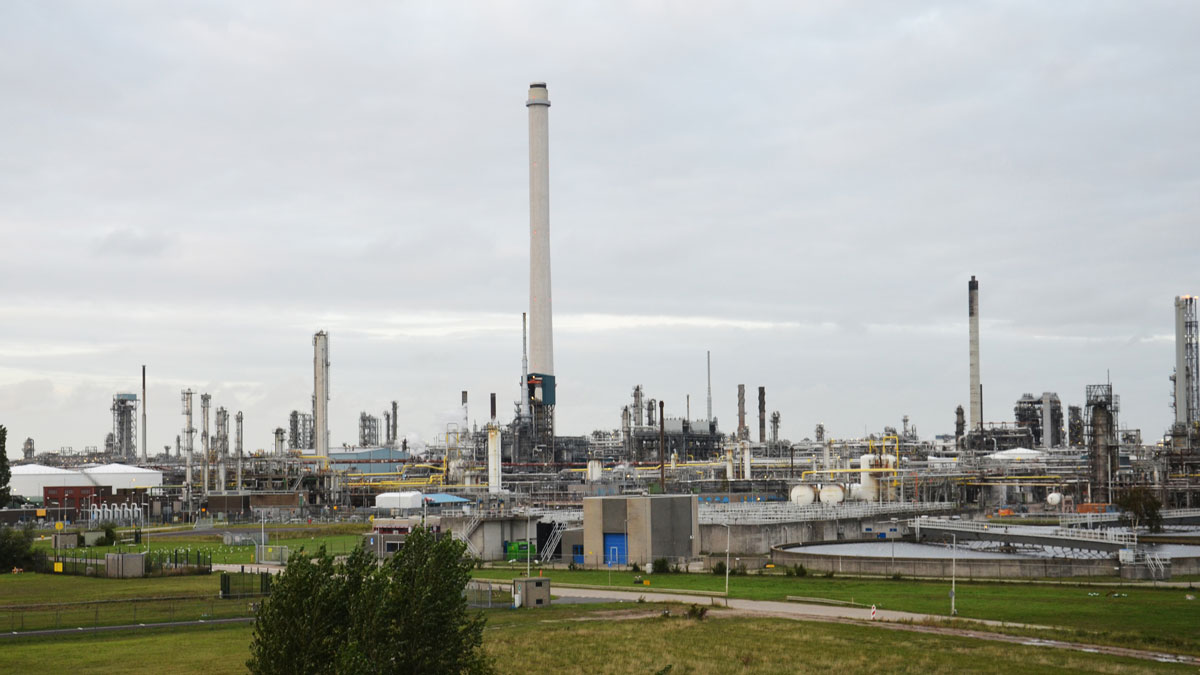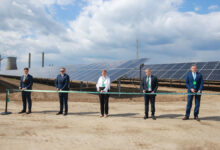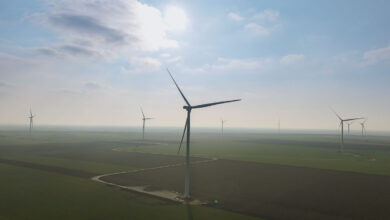Building One of Europe’s Biggest Biofuels Facilities
Shell is committed to producing and supplying low carbon fuels (LCF) such as sustainable aviation fuel (SAF), biodiesel, bioethanol and renewable compressed natural gas (R-CNG), to help lower carbon emissions from transportation.
On September 16 the company announced a final investment decision to build an 820,000-tonnes-a-year biofuels facility at the Shell Energy and Chemicals Park Rotterdam, the Netherlands, formerly known as the Pernis refinery. Once built, the facility will be among the biggest in Europe to produce sustainable aviation fuel (SAF) and renewable diesel made from waste.
A facility of this size could produce enough renewable diesel to avoid 2,800,000 tonnes of carbon dioxide (CO2) emissions a year, the equivalent of taking more than 1 million European cars off the roads.
The new facility will help the Netherlands and the rest of Europe to meet internationally binding emissions reduction targets. It will also help Shell to meet its own target of becoming a net-zero emissions energy business by 2050, in step with society’s progress towards achieving the climate goals of the Paris Agreement. Advanced production methods will be used to make the fuels. The facility is expected to use technology to capture carbon emissions from the manufacturing process and store them in an empty gas field beneath the North Sea through the Porthos project. A final investment decision for Porthos is expected next year.
“Today’s announcement is a key part of the transformation of one of our major refineries into an energy and chemicals park, which will supply customers with the low-carbon products they want and need,” said Huibert Vigeveno, Shell’s Downstream Director.
As part of its Powering Progress strategy, Shell is transforming its refineries (which numbered 14 in October 2020) into five energy and chemicals parks. Shell aims to reduce the production of traditional fuels by 55% by 2030 and provide more low-carbon fuels such as biofuels for road transport and aviation, and hydrogen. The Energy and Chemicals Park Rotterdam is the second park to be announced, following the launch in July of the Energy and Chemicals Park Rheinland, in Germany.
The Rotterdam biofuels facility is expected to start production in 2024. It will produce low-carbon fuels such as renewable diesel from waste in the form of used cooking oil, waste animal fat and other industrial and agricultural residual products, using advanced technology developed by Shell.
A range of certified sustainable vegetable oils, such as rapeseed, will supplement the waste feedstocks until even more sustainable advanced feedstocks are widely available. The facility will not use virgin palm oil as feedstock.
Sustainable aviation fuel (SAF) could make up more than half of the 820,000-tonnes-a-year capacity, with the rest being renewable diesel. Shell can adjust this mix to meet customer demand.
These low-carbon fuels will help to meet growing demand from the transport sector, including hard-to-decarbonise sectors such as heavy road transport and aviation. SAF currently accounts for around 0.1% of global aviation fuel. Shell’s investment will help increase SAF production, which is vital if aviation is to cut carbon emissions.
“Shell has been on the road to a lower-carbon future for some time. This investment is an important step as we transform the Energy and Chemicals Park Rotterdam from a traditional refinery into a sustainable energy park. The project will mean hundreds of millions of dollars of investment each year during construction, it will create hundreds of jobs, and help to maintain the facility’s competitiveness for years to come,” Marjan van Loon, President Director of Shell Netherlands BV said.
The announcement marks another step in the transformation of the former Pernis refinery into an energy and chemicals park. It complements Shell’s plans to build a 200-megawatt hydrogen electrolyser in the Port of Rotterdam, and the planned Porthos CCS project, both of which could help to decarbonise operations at Pernis significantly. When built, Porthos will transport and store CO2 that is captured by various companies, including Shell. The project aims to capture up to 2.5 million tonnes of CO2 a year from 2024 and could make a significant contribution to meeting the Dutch climate ambitions.
Shell is working with partners to create a green hydrogen hub in the Port of Rotterdam. In July 2020, Shell and Eneco were awarded a tender for the 759-megawatt (MW) Hollandse Kust Noord offshore wind project in the North Sea. This renewable power can be used to produce green hydrogen at the planned 200 MW electrolyser, which is intended to start operations by 2023 to produce about 50,000 – 60,000 kg of hydrogen a day.
Advanced production methods use bio-naphtha and light hydrocarbon gasses created during the formation process to create hydrogen. Hydrogen and high-pressure steam are then used in the production process to convert oils into fuels (hydroprocessing), helping to reduce the fuel’s carbon intensity.







